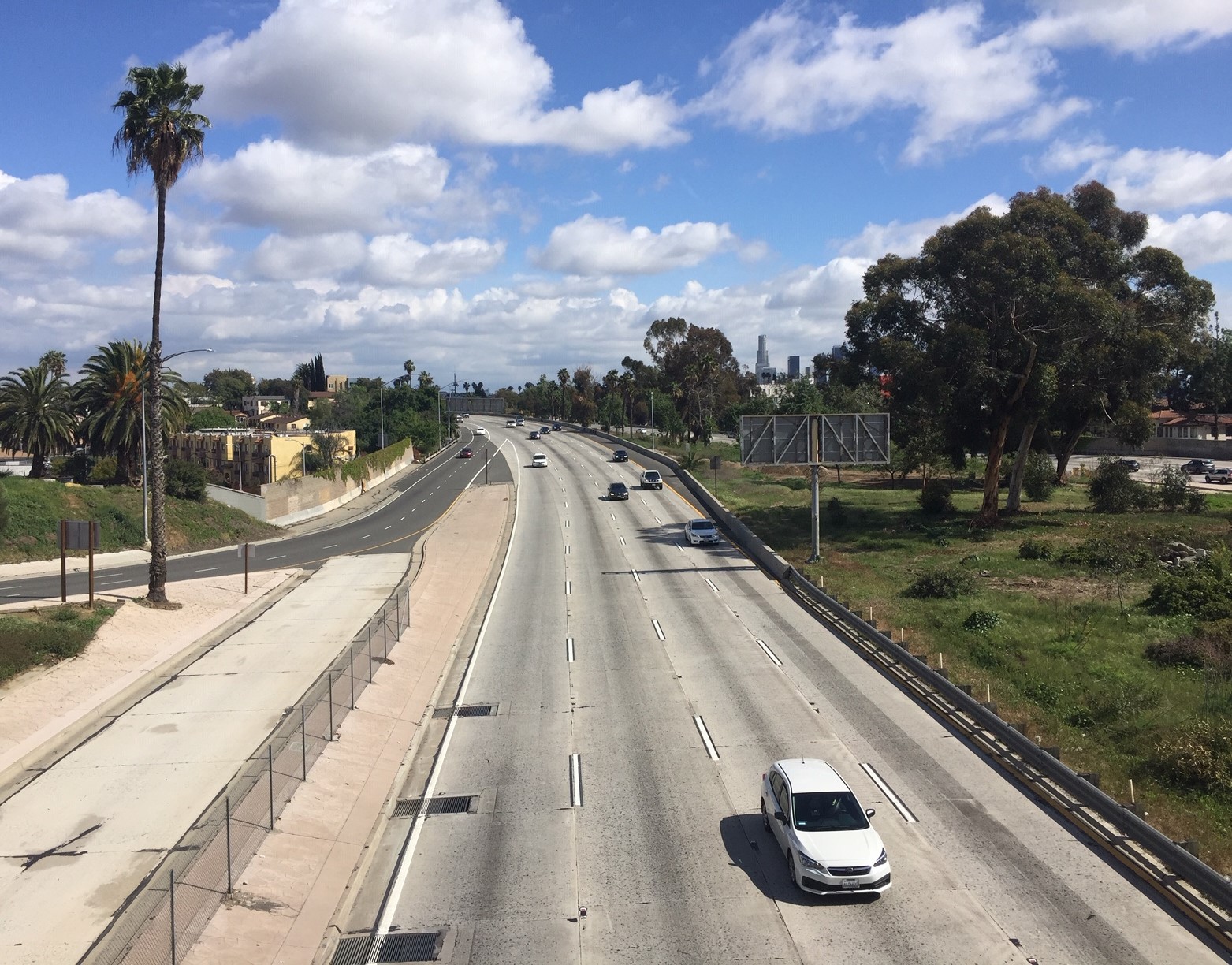
Under COVID-19 stay-at-home orders, Angelenos have been driving a lot less. While there are still drivers on the road, L.A.'s ubiquitous car congestion has largely disappeared. Remaining drivers likely see this as a silver lining to the coronavirus crisis, but it does have a big serious downside: speeding.
L.A. joins many U.S. cities that are currently seeing bigger speeding problems than usual. New York City reports increased automated speed violation citations even while car traffic plummets. Seattle reports increased car speeds. Boston is seeing crash severity worsen, while the number of crashes declines. Speed-worsened car crash injuries further strain healthcare capacity already challenged by the growing number of COVID-19 patients.
The L.A. Times' Laura Nelson tweeted that drivers on the 405 Freeway, in March, were "averaging over 70 mph during peak times," exceeding the 65 mph speed limit.
One finding? It took a pandemic to tame traffic on the 405 Freeway. Drivers in Los Angeles and Orange County were averaging 70+ mph this week, @INRIX found.
— Laura J. Nelson 🦅 (@laura_nelson) March 27, 2020
+ so many more interesting data points to explore: https://t.co/1xVlvnI8qg pic.twitter.com/5hijK0txUi
In late March, the Times quoted California Highway Patrol Officer Jim Bettencourt on the impacts of higher freeway speeds, “With no traffic, people are pushing the envelope a little more. The crashes are a little more dynamic, fewer fender-benders... Almost every one has an ambulance responding."
In March, Car and Driver reported that average speeds in Los Angeles are 48 percent higher. Two days ago, L.A. City Department of Transportation General Manager Seleta Reynolds tweeted that "L.A. drivers are averaging 12 percent faster" with some "as much as 25 percent faster."
Monitoring speeds from a variety of data sources. LA drivers are averaging 12% faster. Some of them as much as 25% faster. Recovery will take a while. We can avoid the vicious cycle of raising speed limits using the 85th %ile method with help from the state.
— Seleta Reynolds (@seletajewel) April 4, 2020
Reynolds emphasizes that the new speeding behavior could result in a vicious cycle where, under California speed limit laws, the city could be forced to raise speed limits.
The state's 85th percentile law, which the L.A. Times calls "outdated, absurd and downright dangerous,” requires municipalities to raise speed limits where traffic surveys find that drivers are already speeding. Reynolds' LADOT and others have pushed to reform this, but to date that process has been slow, due to opposition from the California Highway Patrol, Teamsters, auto clubs, and the trucking industry.
State Assemblymember Laura Friedman (D - Glendale) has been a persistent leader in efforts to reform the way speed limits are set. Given the speeding resulting from the pandemic, Friedman's current modest speed limit reform bill A.B. 2121 is starting to look downright visionary. A.B. 2121 would extend the period of time between required traffic speed surveys. Currently this is five to seven years; A.B. 2121 would make it ten years. Cities will very likely face serious deficits in the wake of the pandemic. A.B. 2121 is now a very timely very sensible reform to lessen the pressure on cities to spend limited resources on surveys to raise speed limits.
The pandemic won't last forever, and it will be important to ensure that dangerous speeding doesn't either.






